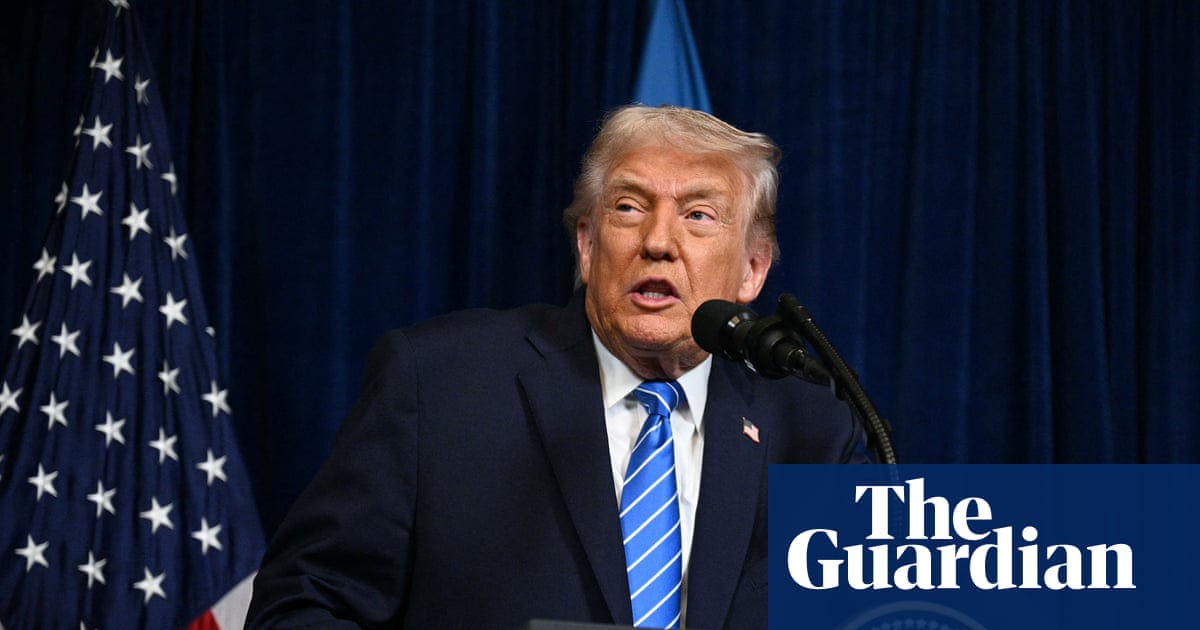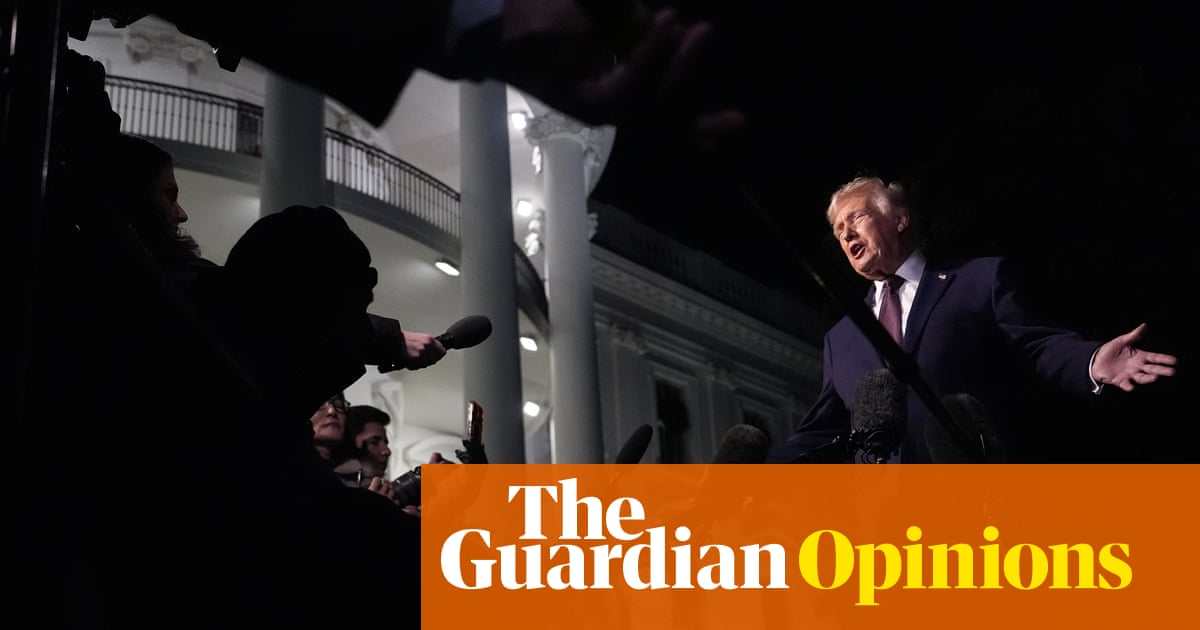As the Trump administration wages an all-out assault on climate protections and renewable energy, activists are gearing up for demonstrations this Sunday to hype up solar power and energy efficiency.
The national “day of action”, called Sun Day, will be spearheaded by veteran climate activist Bill McKibben.
“Trump has aimed squarely at clean energy,” McKibben told the Guardian. “So we need to fight back, and in this case we get to play not just defense but offense too.”
Since retaking the White House in January, Trump has launched more than 150 anti-environmental and anti-renewable energy actions. In McKibben’s view, the fossil fuel industry, which donated massively to Trump’s presidential campaign, is pushing for these moves because they are scared of the threat of fossil-free power.
“The reason big oil has Trump pushing so hard is that they realize the sudden, deep threat of renewable energy, that it’s growing faster than any energy source in history, and starting to take serious market share,” he said. “The ball has begun to roll downhill and we’ve got to push and push to make it go faster, so it has some hope of even beginning to catch up with the physics of global warming.”
The event organizers say it could be one of the largest environmental mobilizations of the decade. But it will look different than the climate marches of years past, which have sought to defend regulations and science from corporate interests. (The day before Sun Day, activists will take up that familiar format at the Make Billionaires Pay march in New York City.)
Instead, Sunday’s 200-plus actions nationwide demonstrations will highlight the promise of renewable energy. In Virginia, Habitat for Humanity will install solar panels on affordable homes while a public school district rolls out an electric school bus fleet. In New Hampshire, a band will play a show with amplifiers powered by electric Ford F-150 trucks.
McKibben will spend the day in New York City’s Union Square Park alongside notables like actress-activist Jane Fonda; city comptroller Brad Lander; and Grammy-nominated singer and actress Antonique Smith who will perform the Beatles’ Here Comes the Sun, which is also the name of McKibben’s new book on renewable power.
“In some places, Sun Day will be about fighting new gas pipelines,” McKibben said. “But everywhere it’s about making clear that this is no longer ‘alternative’ energy but instead the clear path forward. That is the greatest threat by far to the fossil fuel industry.”
Oregon will host its largest ever clean energy celebration featuring Indigenous dancers, while Minnesota will see theatrical performances and Washington, DC advocates will host tours of solar-powered homes. And in New Paltz, New York, the mayor’s office will unveil a new net-zero fire station. Other large demonstrations will take place in Berkeley, California; Chicago, Illinois; Asheville, North Carolina; Boston, Massachusetts; and Tucson, Arizona.
The protests follow news that US planet-warming pollution rose in the first half of 2025. In recent months, the Trump administration has announced plans to roll back virtually all climate regulations, worked with Republicans to phase out Biden-era clean energy credits, and issued stop work projects for wind farms – including one that was 80% completed – as part of an all-of-government approach to end the growth of offshore wind.
These actions have not managed to halt renewable energy growth. In March, the US generated less than half of its energy from fossil fuels for the first time.
Still, Sun Day’s approach is not without critics, with some arguing that the optimistic, sunny demonstrations could feel tone-deaf amid Trump’s environmental attacks.
Jamie Henn, a climate activist who co-founded the environmental nonprofit 350.org with McKibben who is organizing Sun Day, says he’s seen the critiques.
“I’ve actually sort of felt it myself,” he said. “I mean, I’ve worked mostly in the anti-fossil fuel space for most of my career.”
But successful social movements should be able to not only name villains but also celebrate solutions and foster hope, said Henn.
“You see that in civil rights movement, obviously, with both standing up to Jim Crow and racism, but also having King say, I have a dream,” he said. “You see it in the LGBTQ movement with Harvey Milk saying, ‘you have to give them hope.’”
He believes the framing could help bring new allies into the climate fight, such as people who might be scared to attend a traditional march – and especially risk arrest – amid Trump’s crackdowns on peaceful protest, or those who are not moved by the villainization of big oil bosses.
“There’s a whole host of people in the YIMBY world who aren’t going to show up to a march against fossil fuels, but totally will get to work building solar,” said Henn, referring to pro-development activists who have adopted the acronym “yes in my back yard”. “If that stops a gas pipeline from getting built, then great.”
McKibben believes the event could also help the climate movement reach traditional American conservatives, who “often think of their home as their castle and like the idea of an independent power supply” that household solar panels can provide.
“That was why three months ago Utah became the first state to legalize the balcony solar now so common in Europe,” he said. “And they’re interested in free markets – that’s why Texas is now the fastest growing clean energy state in the union.”
Henn hopes the demonstrations will be energizing.
“It’s been a super hard year,” he said. “But seeing people show off the solutions that they’re creating in their community? That gives me a lot of hope.”

 3 months ago
57
3 months ago
57

















































